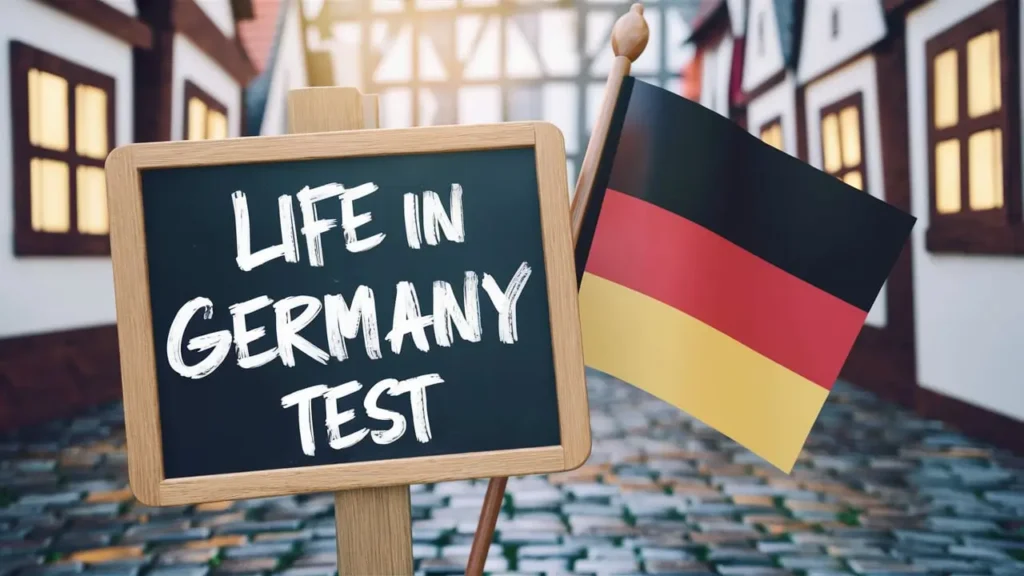Joining a German political party after naturalization is a significant step towards full integration into German society. This article explores the process, implications, and benefits of engaging with political parties in Germany as a newly naturalized citizen.
Joining a Political Party as a Non-Citizen
Even if you are not yet a German citizen, you can still get involved in local politics by joining a political party. Many parties, such as the Social Democratic Party (SPD) and the Christian Democratic Union (CDU), allow non-citizens to become members, although their rights may be limited.
Joining a party can provide you with opportunities to:
- Engage in political discussions and decisions that affect your community
- Network with like-minded people, local politicians, and community leaders
- Contribute to shaping party policies, particularly on issues relevant to immigrants and integration
- Learn about the political process and how democracy functions in Germany
- Represent your interests and ensure your voice is heard in political discourse
When choosing a party, research their platforms and values to find one that aligns with your beliefs. Consider factors such as their stance on immigration, social justice, and economic policies.
Participating in Local Initiatives and Grassroots Movements
Another way to get involved in local politics is by participating in civil society organizations, local initiatives, and grassroots movements. These groups often focus on addressing specific community issues, such as education, public safety, and immigrant integration.
By getting involved in these initiatives, you can:
- Contribute your skills and experiences to make a positive impact on your community
- Network with other engaged citizens and build relationships with local leaders
- Learn about the political process and how to effectively advocate for change
- Raise awareness about issues affecting immigrants and push for policy changes
Engaging with Local Politicians and Authorities
Even if you cannot vote, you can still engage with local politicians and authorities to make your voice heard. Some ways to do this include:
- Attending town hall meetings and public forums to ask questions and share your concerns
- Contacting your local representatives via email, phone, or social media to share your views and ideas
- Participating in public consultations and providing input on local policies and projects
- Attending rallies and protests to show your support for causes you believe in
Preparing for Citizenship and Voting
While you cannot vote until you become a German citizen, you can still prepare for this important milestone by:
- Studying German politics and the political system to understand how decisions are made and how you can influence them
- Staying informed about current events and political issues through reliable news sources and discussions with others
- Developing your language skills to effectively communicate your ideas and participate in political discourse
By getting involved in local politics before gaining citizenship, you can build a strong foundation for active civic engagement and ensure that your voice is heard in shaping the future of your community.
Joining a Political Party after getting German Citizenship
Eligibility
In Germany, joining a political party is open to all citizens, including those who have recently undergone German naturalization. Non-citizens can also join some parties, although their rights may be limited. For example, members of the Social Democratic Party (SPD) can participate in party activities without being German citizens, while other parties like the Christian Democratic Union (CDU) allow EU citizens to join with certain restrictions.
Requirements
To join a German political party, you must be at least 16 years old and agree with the party’s principles and values. Importantly, you do not need to be a German citizen to become a member of most parties. However, as a naturalized citizen, you can fully participate in party activities, including voting on important decisions.The process of joining a party typically involves filling out a membership application and paying a membership fee. The specific requirements and procedures may vary slightly between parties, so it’s best to check the party’s website or contact their membership office for more information.
Benefits of Joining a Political Party
- Political Engagement: Membership allows individuals to engage actively in political discussions and decisions that affect their lives and communities.
- Networking Opportunities: Joining a party can connect individuals with like-minded people, local politicians, and community leaders.
- Influence on Policy: Members can influence party policies and contribute to shaping the political landscape, particularly on issues relevant to immigrants and integration.
- Civic Education: Being part of a political party provides insights into the political process, helping members understand how democracy functions in Germany.
- Community Representation: Many parties have specific initiatives aimed at representing the interests of immigrants and ensuring their voices are heard in political discourse.
Choosing the Right Party
When considering which political party to join, it’s essential to research their platforms and values. Major parties in Germany include:
- Social Democratic Party (SPD): Focuses on social justice and equality.
- Christian Democratic Union (CDU): A center-right party emphasizing traditional values and economic stability.
- The Greens: Advocates for environmental issues and social justice.
- Free Democratic Party (FDP): Prioritizes individual freedoms and economic liberalism.
- Left Party (Die Linke): Focuses on social equality and anti-capitalist policies.
- Alternative for Germany (AfD): A right-wing populist party known for its anti-immigration stance.
Understanding where your beliefs align with a party’s platform can help in making an informed decision.
The Impact of becoming a member of a German political party
Personal Growth
Joining a political party can lead to personal growth. Members often find themselves more informed about current events and political issues. This involvement can enhance critical thinking and public speaking skills, as members engage in discussions, debates, and community outreach.
Community Impact
Political parties often engage in local initiatives that benefit the community. By joining a party, members can participate in or lead projects that address local issues, such as education, public safety, and immigrant integration.
Representation
Political participation helps ensure that the voices of immigrants are represented in the political arena. Many political parties are increasingly recognizing the importance of diversity and inclusion within their ranks. For instance, the SPD has actively sought to include members from diverse backgrounds to better represent the interests of all citizens.
Challenges and Considerations
While joining a German political party after naturalization can be a rewarding experience, it’s important to be aware of some potential challenges and considerations:
- Language barriers: Participating in party activities may require a high level of German language proficiency. If you’re not yet fluent, consider taking language courses or seeking support from other party members.
- Time commitment: Being an active party member requires a significant time commitment, which may be challenging to balance with work, family, and other responsibilities.
- Potential conflicts: As a naturalized citizen, you may face unique challenges or conflicts that native-born party members may not experience. It’s important to be aware of these issues and seek support from other members who share similar experiences.
- Representation and diversity: While parties are generally open to members from diverse backgrounds, the leadership and decision-making bodies of German parties may not always reflect the diversity of their membership. Advocating for greater representation and diversity within the party can be an important goal for naturalized citizens
Sum up
Joining a German political party after naturalization is a meaningful way to engage with the democratic process and contribute to society. It offers numerous benefits, including personal development, community involvement, and the chance to influence policy. As Germany continues to evolve into a more multicultural society, the participation of immigrants in political life is crucial for fostering understanding, representation, and social cohesion.
By actively participating in political parties, newly naturalized citizens can play a vital role in shaping the future of Germany, ensuring that their voices and experiences contribute to the nation’s democratic fabric.




